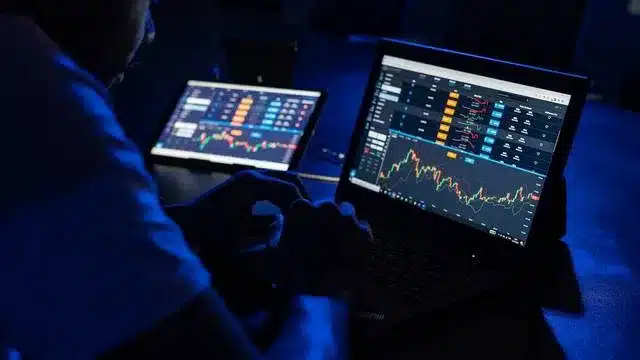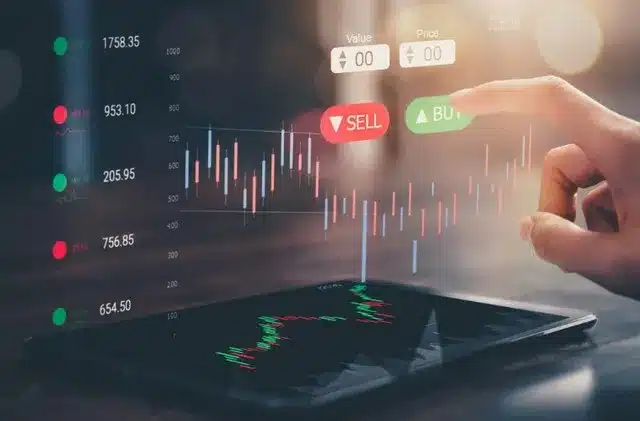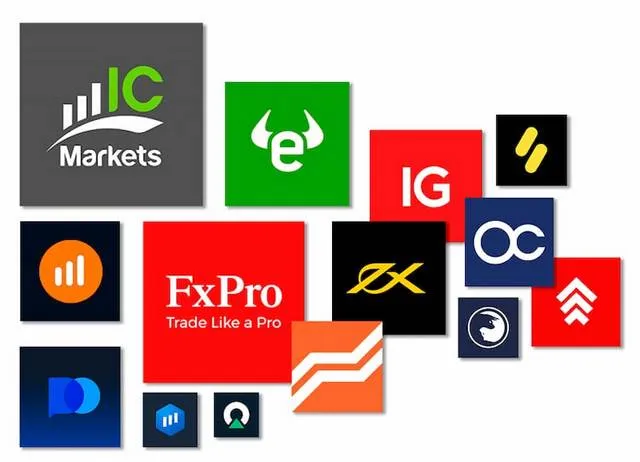When engaging in Forex trading, it is essential for every trader to grasp the fundamental trading methods. Along with mastering the basics, understanding fundamental trading analysis is key to making informed decisions and maximizing profits. In this article, H2T Finance will provide an in-depth guide to various trading methods and how fundamental analysis can enhance your trading strategy for better market predictions.
Contents
1. What is Fundamental Trading in the Forex Market?
Fundamental trading in the foreign exchange market involves the buying and selling of currencies or assets that are used for international payments. These assets can include commodities like gold or government bonds, which are crucial in global trade.
Traders who specialize in fundamental trading focus on macroeconomic factors such as interest rates, inflation, and geopolitical events that influence the value of currencies and commodities.
By understanding these market-driving elements, traders can make more informed decisions and predict price movements more accurately. This approach helps traders identify long-term trends, providing a solid foundation for strategic investment decisions in Forex.

2. Main Types of Forex Trading Transaction
Some types of fundamental trading that can be performed in the Forex market include: fundamental markets such as currency pairs, commodities like gold, and government bonds, all of which are influenced by economic data and geopolitical events.
Spot Trading
Foreign exchange transactions involve buying and selling currencies at the exchange rate set at the time of the trade. This method is ideal for traders who need to exchange currencies quickly. Payments are typically settled within 48 hours, offering a quick turnaround for those engaging in fundamental markets.
Forward Contract
This method involves buying and selling foreign currencies at a predetermined exchange rate, with payment being settled at a specified future date. It allows traders to hedge against currency fluctuations, providing flexibility in timing the transaction.
Swap
A form of trading that involves both buying and selling the same amount of currency, but with payments made in two separate transactions. Banks and large financial institutions often engage in swap transactions to manage cash flows and mitigate risks more effectively, a strategy commonly used by fundamental traders.
CFD – Contract for Difference
In this form of trading, traders don’t directly own the assets but rather capitalize on the fluctuations in exchange rates. By leveraging both fundamental analysis and technical analysis, they can predict market movements and profit from the differences in currency values. This strategy involves analyzing economic indicators and price patterns to make informed trading decisions.
Options Trading
Traders can choose to buy or sell a currency at a predetermined time in the future, using this strategy either to manage risks or to capitalize on potential market movements. This form of transaction is essential for those incorporating both fundamental analysis technical analysis into their trading strategy, helping to ensure better decision-making and profitability.
Futures Contract
Similar to Forward Contracts, this type of transaction is more standardized and takes place on regulated exchanges. Traders agree to buy or sell a currency at a predetermined exchange rate for a future date.
This mechanism is commonly used by those who apply both fundamental and technical analysis to predict market movements and manage risk effectively. By locking in exchange rates, traders can hedge against potential market volatility and fluctuations in currency values.

See more related articles:
- What Is Leverage in Forex and How to Use It
- Japanese Yen Technical Analysis Ahead of BoJ Decision: Key Currency Pairs to Watch
3. Things to Take Note for Forex Trading
3.1. Select a Trusted and Regulated Broker
To start, traders should carefully select a reliable forex brokerage platform. It’s crucial to prioritize brokers that are licensed by well-known regulatory authorities like ASIC, CySEC, or FCA, as this ensures transparency and security. Furthermore, it’s important to gather detailed information about other key aspects such as:
- Trading fees
- Compensation terms
- Supported account types
- Withdrawal conditions
- Leverage and spread fees
If a broker platform lacks clear information, you should avoid risking depositing funds for trading.
Traders should prioritize Forex brokers that are fully licensed

3.2. Perform Comprehensive Market Analysis
Investing in forex can be challenging for those without a solid understanding of financial knowledge or basic analysis skills. That’s why it’s crucial to constantly enhance your analytical abilities, including:
- Fundamental analysis to assess the overall market
- Technical analysis using indicator tools to predict trends
- Sentiment analysis based on news
Certainly, these skills go beyond theoretical knowledge. Along with studying, it’s essential to practice by using a demo account or begin trading with a small amount of capital to gain hands-on experience.
3.3. Have a Clear Strategy
Rather than trading based on gut feelings, it’s essential to create a well-defined strategy. This should include:
- Set clear goals: Decide in advance when you will stop based on your profit or loss levels, and define the capital you are willing to invest.
- Identify entry and exit points: This includes setting take-profit and stop-loss levels. Additionally, it’s helpful to maintain a trading journal to reflect on experiences and adjust your strategy accordingly.
- Control emotions: Forex traders are often influenced by market news and the crowd mentality, which can lead to poor decisions. Therefore, learning to stay emotionally disciplined and knowing when to stop is key to successful trading.
3.4. Implement a Risk Management Plan
In the face of unpredictable market fluctuations, it’s crucial to have a solid risk management plan in place. Here are some key considerations to keep in mind:
- Diversify your investments: Traders should avoid concentrating all their capital in one asset or trade. Instead, spread the risk by diversifying into different currencies or financial instruments
- Exercise caution with leverage: Leverage can amplify returns but also magnifies losses. It’s crucial to use leverage prudently and avoid excessive risk exposure.
- Establish clear exit points: Always define your take-profit and stop-loss levels to protect your investments and limit potential losses if the market moves unfavorably.
- Never borrow to trade: Invest only funds you can afford to lose. Avoid borrowing money or using credit to trade, as it can increase your financial risk.
H2T Finance boasts over 10 years of practical investment experience, offering expert insights on market trends and tailored investment advice. In addition, we provide a variety of free trading tools to assist traders in their journey. With the information shared, you now have a solid understanding of fundamental trading in Forex. To dive deeper into both fundamental and technical analysis, be sure to check out our upcoming articles at H2T Finance
About H2T Finance
At H2T Finance, we believe that a strong foundation is key to success in the forex market. Our Beginner Basics category is designed to help new traders understand the essential concepts of currency trading, from how the forex market operates to basic strategies for getting started. Backed by the trusted expertise of H2T Media Group, we provide clear, reliable information and real-time insights to support your journey from first trade to confident decision-making in the dynamic world of forex.
For inquiries or personalized assistance, feel free to contact us:
📞 Phone: +84933.948.888
📧 Email: [email protected]
📍 Address: 4/567 Tổ 10 Khu Phố Hòa Lân 1, Thuận An, Bình Dương, Vietnam
At H2T Finance, your success is our priority.
